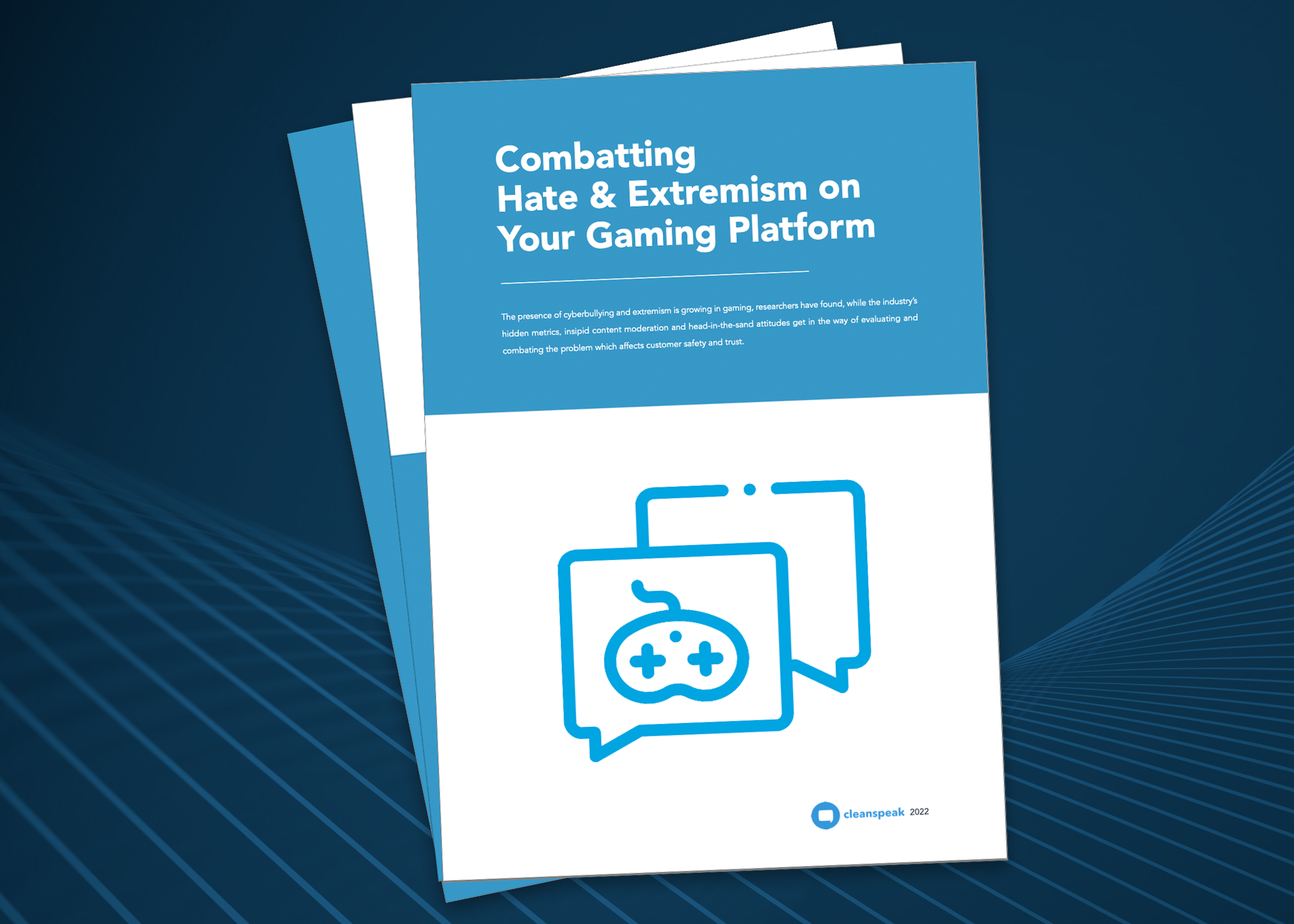How Game Developers Can Keep Hate and Extremism Off Their Platforms

- By Blair Ewalt
- Online Community, Strategies
- May 27, 2022

The following is an excerpt from CleanSpeak’s new whitepaper: Combatting Hate & Extremism on Your Gaming Platform. The link to the full whitepaper can be found at the bottom of the article.
The Growing Problem of Hate and Extremism on Gaming Platforms
B2C companies tend to understand that customer satisfaction and reputation management are crucial to their success. They need to recognize the importance of monitoring the content that their platforms host to provide a safe and trusted environment for their users, comply with federal and state regulations, and manage brand perception.
Those seeking to instigate hate and violence for their ideological ends are turning toward gaming spaces in greater numbers, especially as traditional social media platforms continue to amp up enforcement of their rules and crack down on the content users share.
This problem warrants attention because gaming is big business. Recent data indicates that gaming is now the most profitable entertainment industry around the globe, generating more money each year than the movie and music industries combined. The global games market is estimated to generate $152.1 billion from 2.81 billion gamers worldwide. By comparison, the global box office industry was worth $41.7 billion in 2020, while global music revenues reached $19.1 billion.
Hate Speech and Extremism Defined
Hate speech might be defined as any form of expression that expresses or incites hatred against a group or a class of persons on the basis of race, religion, skin color, sexual identity, gender identity, ethnicity, disability, or national origin. Yale Law School professor Robert Post notes that prohibiting or suppressing hate speech “is to forbid expression of ‘extreme’ intolerance or ‘extreme’ dislike. The qualification ‘extreme’ is prerequisite because intolerance and dislike are necessary human emotions which no legal order could pretend to abolish.”
According to the Anti-Defamation League, extremism is a “concept used to describe religious, social or political belief systems that exist substantially outside of belief systems more broadly accepted in society (i.e., ‘mainstream’ beliefs). Extreme ideologies often seek radical changes in the nature of government, religion or society.”
Hate Speech and Extremism in Gaming
Organizations that have platforms that rely on user-generated content are struggling to maintain customer safety and trust. Hate speech and extremism are hard to monitor and censor due to the massive quantities of text, images, videos, and content being created daily.
According to the aforementioned Preply study, Over 90% of gamers have experienced or witnessed emotional abuse or bullying on gaming platforms, and more than half admitted to bullying others. Nearly 7 in 10 have considered quitting due to what they’ve witnessed. More than two in five have experienced racism, and more than one in three have experienced hate speech on gaming platforms. Nearly 20% of gamers say they’ve experienced some kind of extremist content.
Offenses can include name-calling, racism, stalking, hate speech, insults, explicit language, swatting (calling emergency services with false reports of violent crimes), flaming (hostile online interactions that involve an exchange of insulting messages, or flames, between users), physical threats, and doxxing (revealing someone’s sensitive information).
The problem is widespread. For example: Steam, the leading social platform for PC gamers, has recently gained popularity among white supremacists for being a platform, like Gab and Telegram, where they can openly express their ideology and make public calls for violence. Discord, a group chatting platform for gamers, has become an online space for initiating people from the early stages of radicalization all the way to extremism. Trolling and hate raids have thrived on Twitch, an interactive livestreaming service for content spanning gaming and entertainment. Extremist groups have built propaganda content, including interactive Nazi concentration camps, in such video games as Roblox. Anti-Semitic, racist, and homophobic comments are often found on gaming platforms that allow users to stream and chat about games, such as Call of Duty and Minecraft.
To keep reading and find out the best strategies to combat hate and extremism on video game platforms, check out the full whitepaper available here.